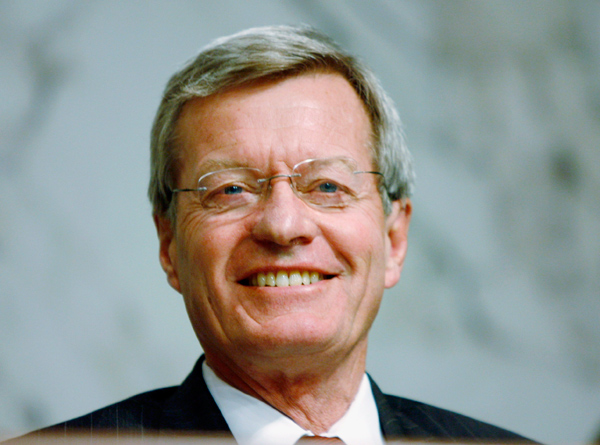 |
| Senator Max Baucus, possible US ambassador Baucus called a big figure for a big relationship. |
Possible US ambassador Baucus called a big figure for a big relationship
Max Baucus, expected to be nominated as the next US ambassador to China, will have to play a balancing act between implementing Washington's policies and addressing Beijing's concerns over its strategic interests, observers said.
Baucus, a long-time Democratic senator who is chairman of the Senate Committee on Finance, is expected to be nominated by US President Barack Obama to replace Gary Locke, who is leaving office early next year.
The news of Baucus' impending nomination, reported by Politico, came as a surprise to some China watchers, because Baucus' links with China — including his Senate role in handling trade disputes — seem far less obvious than his predecessor's.
The Montana native has served in the Senate since 1978 and has been the chairman of the powerful Finance Committee since 2007. He also heads and serves on several other committees, such as taxation, agriculture, transportation and infrastructure, and deficit reduction.
Douglas Paal, vice-president for studies at the Carnegie Endowment for International Peace, said Baucus would bring to the table years of careful stewardship of the US-China trade relationship.
"He brings serious Senate accomplishments, access to the president and to key senators. That is more than most ambassadors have been able to offer. He is a big figure for a big relationship," Paal said.
Baucus has been a keen advocate for local businesses in Montana, and he has visited China eight times. He hosted trade delegations from China in both Washington and Montana.
Beijing expressed hope on Thursday regarding the possible nomination of Baucus.
"We expect joint efforts with a new US ambassador to push forward the lasting, healthy and stable development of the Sino-US relationship," said Foreign Ministry spokeswoman Hua Chunying.
Shi Yinhong, a professor of US studies at Renmin University of China in Beijing, said Baucus is a veteran in handling trade and financial issues, but "it remains to be seen" whether he will contribute to eliminating trade disputes between the world's two largest economies.
The veteran Democrat also led the US effort in the 1990s to establish Permanent Normal Trade Relations between the two countries and to bring China into the World Trade Organization.
But during a trip to China in 2011, he complained about China's currency policy and intellectual property situation, according to a news release from his office.
The Washington Post described Max Baucus as someone who shares the Obama administration's views on how to approach delicate relations, such as currency, intellectual property rights, labor, the environment and human rights.
The new top envoy is also expected to be cautious in public remarks, because "the Sino-US relationship is currently going well, but divergence remains in regard to China's strategic interests", Shi said.
"Baucus should avoid misunderstandings in the future when it comes to China's strategic interests, and play a constructive role in developing the Sino-US relationship, not the opposite," Shi said.
Despite conflicting opinions in trade and maritime interests, the countries "have worked in a proactive manner this year to expand common ground and avoid ruining the big picture of bilateral cooperation", said Cui Liru, a senior research fellow of US studies at the China Institutes of Contemporary International Relations.
Cui said "the competing side and the cooperative side will definitely continue to co-exist in the bilateral context".
Politico said Baucus' expected nomination had been rumored in congressional circles in the past month, but it only became clear in recent days that the White House would make the appointment.
Former US Congressman from Oregon David Wu described Baucus as "low-key", "very thoughtful," someone who "does his homework" and "an expert in tax, commercial and business matters".
"He will be every bit as knowledgeable about China as just about any of our ambassadors to China," Wu said.
Baucus, who turned 72 on Dec 11, announced on April 23 that he would retire from the Senate at the end of his term in 2015. Last month, Locke, the current US ambassador to China, announced that he would step down early next year, citing personal reasons.
The expected nomination, however, still requires confirmation from the US Senate, but sitting US senators normally don't face much objections from colleagues.
Orville Schell, Arthur Ross Director of the Center on US-China Relations at Asia Society, said: "Although Max Baucus is not extremely well known in popular American lore like Caroline Kennedy, nor is he a China specialist, he is a retiring senior senator with substantial interest and experience in trade and foreign policy issues."
"Moreover, his long experience in the Senate and Democratic Party politics should give him both the ear of the president and clout with the Congress, which is important," Schell said.
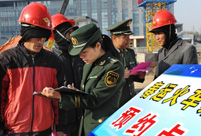 People prepare for upcoming 'Chunyun'
People prepare for upcoming 'Chunyun'  Highlights of Beijing int'l luxury show
Highlights of Beijing int'l luxury show Record of Chinese expressions in 2013
Record of Chinese expressions in 2013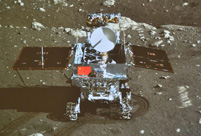 China's moon rover, lander photograph each other
China's moon rover, lander photograph each other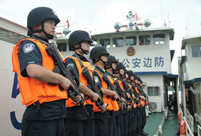 17th joint patrol of Mekong River to start
17th joint patrol of Mekong River to start Spring City Kunming witnesses snowfall
Spring City Kunming witnesses snowfall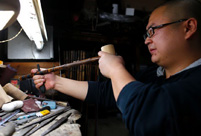 Heritage of Jinghu, arts of strings
Heritage of Jinghu, arts of strings Weekly Sports Photos
Weekly Sports Photos PLA elite units unveiled
PLA elite units unveiled  PLA elite units unveiled
PLA elite units unveiled  Chinese scientific expedition team
Chinese scientific expedition team  Heritage of Jinghu, arts of strings
Heritage of Jinghu, arts of strings The unchanged flavor of changing Beijing
The unchanged flavor of changing Beijing Miss Philippines crowned Miss International
Miss Philippines crowned Miss International Bolt throws down bus challenge in China
Bolt throws down bus challenge in ChinaDay|Week|Month